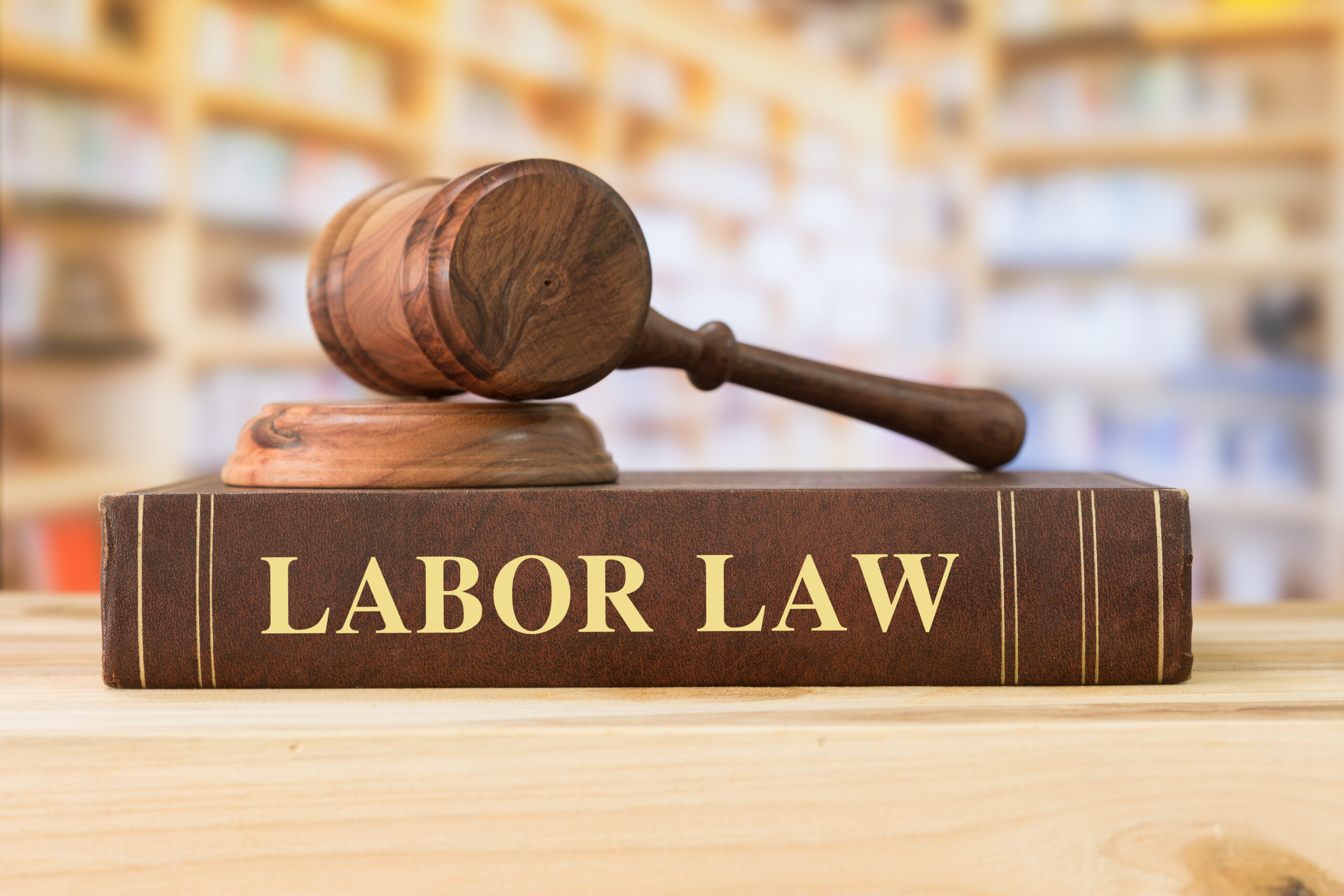Posts tagged U.S. Chamber of Commerce
Op-ed: She looked like a pro-worker Trump cabinet appointee. But now she’s gutting the Labor Department
July 17, 2025 // The standards on the chopping block include those issued by the Occupational Safety and Health Administration, a unit of the Labor Department, that were developed after years of effort. OSHA standards, Reindel told me, take an average of seven years — and as long as 20 years — to draft. “This is an onslaught on people’s basic protections at work.”
NC Farm Bureau sues US Dept of Labor
October 29, 2024 // “Our complaint is that the DOL doesn't have the authority to require collective bargaining or to provide collective bargaining and self-organization rights to workers; that's Congress' job,” said Jake Parker, general counsel for the North Carolina Farm Bureau Federation.
Commentary: Democracy Is at Risk and on the Ballot in November Employee and Employers Are at Risk
October 27, 2024 // With membership down to a little more than six percent in the private sector, unions have grown desperate. They have run a highly effective PR campaign to reinvent themselves as human rights groups, appealing to the millennials and the plurals which are making up the workforce. As Vincent Vernuccio has recently written in his report, “Unions Need Democracy, “private sector unions are becoming less democratic and representative — even as they claim to represent all workers at unionized worksites. Ninety-five percent of union members in the private sector never had the opportunity to vote to be in the union.”
Employer Free Speech on the Ballot in Alaska
October 10, 2024 // The National Labor Relations Act (NLRA) protects such meetings, and the Supreme Court has repeatedly recognized their legality and importance in helping employees gather information on potential union representation. As a result, even if the referendum were to pass, a court would likely find it unlawful. Alaska’s referendum also increases the state’s minimum wage to $15 per hour by 2027 and provides at least 40 hours of paid sick leave to many workers.
Illinois bans companies from forcing workers to listen to their anti-union talk
August 2, 2024 // U.S. Chamber of Commerce and the National Federation of Independent Business are challenging similar laws in other states. The groups say the laws are a violation of the First Amendment, denying employers their right to free speech, and are also in conflict with the National Labor Relations Act, which protects an employer's communications with employees as long as they do not contain threats of reprisals or promises of benefits.

Lawmakers Should Not Let a Lame Duck Pack the NLRB
July 28, 2024 // For instance, on her watch, Chair McFerran has allowed workplace discrimination to be weaponized for pro-union activities. This decision has subjected workers to traumatizing harassment, while simultaneously barring employers from intervening. According to a report by the Institute for the American Worker, McFerran’s NLRB has used Section 7 of the National Labor Relations Act (NLRA) to excuse “racist rhetoric, sexist harassment, and vulgarity in the workplace, as long as it takes place in the context of ‘union activity.’”
WIOA Reauthorization Draft Includes “Blacklisting” Provision, Violating Employers’ Due Process Rights
July 3, 2024 // The blacklisting provision, if implemented, would bar employers from WIOA funding based on findings that are still subject to appeal. As a result, an employer may be denied funding even though a court may rule on appeal that the employer did not violate the law. Efforts to blacklist employers from federal initiatives and funding began under the Obama administration when it issued Executive Order 13673, “Fair Pay and Safe Workplaces,” in July 2014. The Executive Order called for the debarment or suspension of federal contractors from the federal procurement process for allegations of labor and employment law violations. A final rule and guidance implementing the Executive Order were issued in August 2016, but both were blocked from taking effect by the U.S. District Court for the Eastern District of Texas and by Congress via a Congressional Review Act (CRA) resolution.

Frisard’s Transportation v. Department of Labor
June 26, 2024 // And the rule affects far more than the 350,000 owner-operator truckers that operate across the nation. It will affect 70 million freelancers in industries across the country, pushing them towards an employment status when 80% of them want to be independent. Similar legislation in California led to a loss of over 10% of freelancers. With the help of the Pelican Institute, Frisard’s has filed a lawsuit against the Department of Labor, arguing that the new rule is arbitrary and exceeds the department’s statutory authority. The company asserts that the rule undermines the certainty businesses and independent contractors need to operate efficiently and is inconsistent with the Fair Labor Standards Act and precedent set by the U.S. Supreme Court and the Fifth Circuit.
Biden Pushes Early Renomination of Failed NLRB Chair in Effort to Deny Possible Trump Administration Control over Labor Board
June 12, 2024 // The NLRB is composed of five members, usually three of whom are from the president’s political party and two from the opposing party. The Board uses both adjudication and rulemaking to put forward its interpretations of the NLRA, but it needs a quorum of three members to act. Currently, there are four Board members (see Board composition here). Three of the members are Democrats, while one is a Republican. The other Republican seat has been vacant since December of 2022, because President Biden chose not to nominate anyone to that vacancy for a year and a half. While agency vacancies and delays on nominations are nothing new in Washington, this one is notable and shows an unusual partisanship and dishonesty.

Businesses blast new Biden rule allowing union reps to inspect job sites
May 23, 2024 // The National Federation of Independent Businesses, along with the U.S. Chamber of Commerce and other business groups, are helping lead the charge against the new “walkaround” rule, which takes effect May 31 of this year. “Small businesses want to create a safe work environment for their employees, and they understand the necessity of reasonable mandates and inspections to this end,” Beth Milito, executive director of NFIB’s Small Business Legal Center, said in a statement. “But the final rule issued by OSHA goes beyond ‘reasonable’. This rule will allow unlimited third-party individuals to initiate and then join an inspection of a private workplace under the guise of representing the employees. Not only does this violate a small business owner’s private property rights, it will not advance worker safety. It only makes small businesses susceptible to harassment from competitors, union representatives, and other parties intending to cause harm.”
